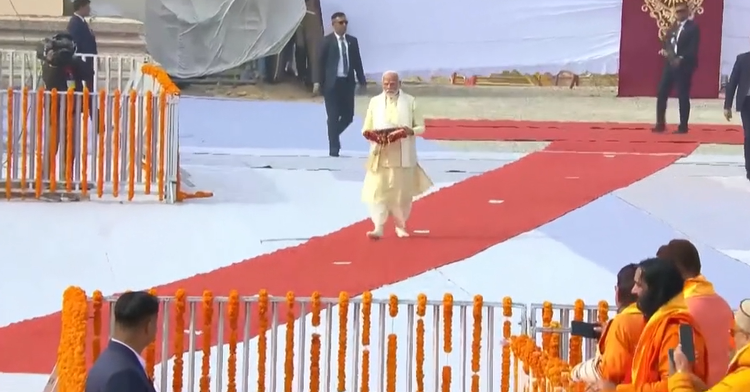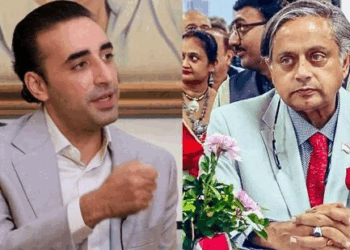In a momentous event that has been awaited for decades, Indian Prime Minister Narendra Modi officially inaugurated the Ayodhya Ram Mandir today, situated on the site that once housed the Babri Mosque. The inauguration ceremony marked the culmination of a prolonged legal and social dispute, underscoring the significance of the temple for India’s cultural and religious identity.
The Ayodhya Ram Mandir, dedicated to Lord Ram, has been a point of contention and debate in India for years. The site gained notoriety in 1992 when the Babri Mosque, which had stood there for centuries, was demolished by a group of Hindu activists, leading to communal tensions and legal battles.
The inauguration ceremony, attended by dignitaries, religious leaders, and thousands of devotees, began with a Vedic ritual and prayers. Prime Minister Modi, addressing the gathering, emphasized the importance of unity and harmony, stating that the Ram Mandir’s construction symbolises a nation’s resolve to move beyond historical conflicts.
“This is not just the inauguration of a temple; it is the restoration of our cultural heritage and a symbol of unity,” remarked Prime Minister Modi during his address. He called for mutual respect and understanding among different communities, emphasizing the need to focus on the country’s development and progress.
The construction of the Ayodhya Ram Mandir was overseen by the Shri Ram Janmabhoomi Teerth Kshetra, a trust established by the government for the development and management of the temple complex. The temple’s design incorporates intricate architectural elements inspired by ancient Indian art and culture, reflecting the grandeur of Hindu temple architecture.
The inauguration ceremony witnessed various cultural performances, showcasing the diversity and richness of India’s traditions. The event drew attention not only from within the country but also from around the world, as the Ayodhya Ram Mandir stands as a symbol of India’s commitment to preserving its cultural heritage.
While the inauguration was met with celebrations and a sense of fulfilment for many, it also sparked discussions about the need for reconciliation and communal harmony. Political leaders and religious figures shared their thoughts on the historic moment, calling for a collective effort to foster unity and understanding.
The Ayodhya Ram Mandir, now open to the public, is expected to attract pilgrims and tourists from across the globe. As India moves forward, the inauguration of this iconic temple is likely to remain a defining chapter in the nation’s history, symbolizing the triumph of resolution and the spirit of inclusivity.








 India
India












